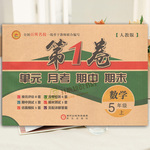题目内容
One Test for Graduate and Business School.
Getting an advanced degree can create many opportunities. The GRE revised General Test—the most widely accepted graduate admission test worldwide—can bring you one step closer to achieving your career goals.
There has never been a better time to take the test that gives you more opportunities for your future. The GRE revised General Test features question types that closely reflect the kind of thinking you'll do in graduate or business school.
Who Takes It?
Prospective graduate and business school applicants from all around the world who are interested in pursuing a master's , MBA, specialized master's in business or doctoral degree take the GRE revised General Test. Applicants come from varying educational and cultural backgrounds and the GRE revised General Test provides a common measure for comparing candidates' qualifications.
GRE scores are used by admissions or fellowship panels to supplement(补充) your undergraduate records, recommendation letters and other qualifications for graduate level study.
When and Where Do People Take It?
The GRE revised General Test is available at more than 700 test centers in more than 160 countries. In most regions of the world, the computer delivered test is available on a continuous basis throughout the year. In Mainland China, Hong Kong, Taiwan and Korea, the computer delivered test is available one to two times per month. In areas of the world where computer delivered testing is not available, the paper delivered test is available up to three times a year in October, November and February.
Who Accepts It?
The GRE revised General Test is accepted at thousands of graduate and business schools as well as departments and divisions within these schools.
1.If you want to study for a master's degree in the USA, you'd better_______ .
A. achieve your career goals
B. earn as much money as possible
C. vary educational and cultural background
D. take the GRE revised General Test
2.In a less developed area with very few computers, test takers probably can't take
the GRE revised General Test in ________ .
A. February B. August C. October D. November
3.What is the purpose of this passage?
A. To sell test papers.
B. To introduce a kind of test.
C. To get new students for schools.
D. To compare two kinds of tests.
 期末1卷素质教育评估卷系列答案
期末1卷素质教育评估卷系列答案
